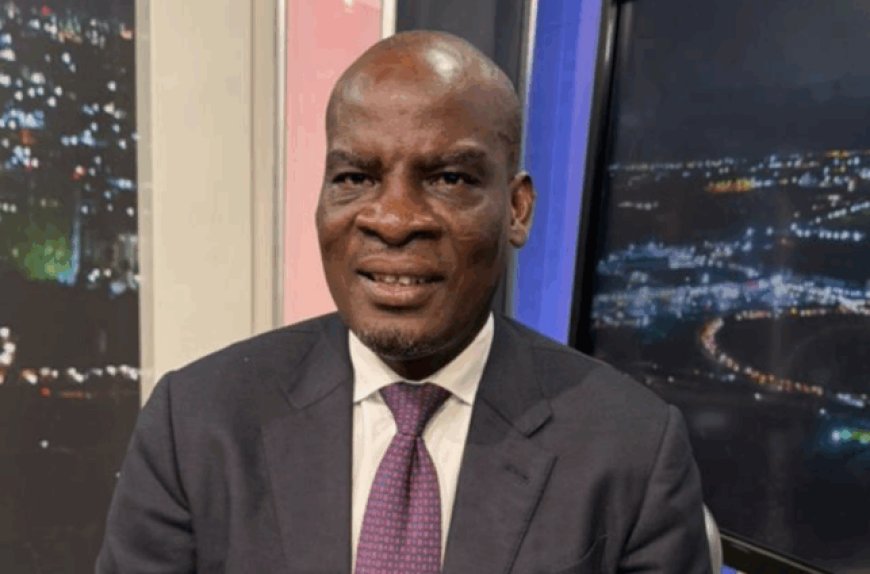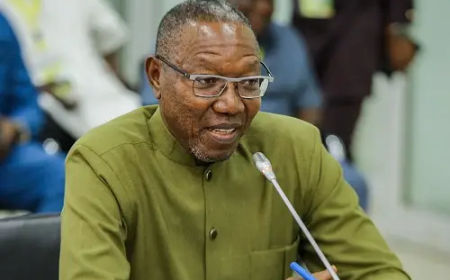Education: The Bedrock of Mahama’s 24‑Hour Economy
Accra, July 3, 2025 — Education Minister and Tamale South MP, Haruna Iddrisu, asserted on JoyNews PM Express that the success of President John Dramani Mahama’s ambitious 24‑Hour Economy policy hinges fundamentally on education. Iddrisu emphasized that without a knowledgeable and skilled populace, other components of the policy—whether economic, environmental, or social—cannot succeed

Accra, July 3, 2025 — Education Minister and Tamale South MP, Haruna Iddrisu, asserted on JoyNews PM Express that the success of President John Dramani Mahama’s ambitious 24‑Hour Economy policy hinges fundamentally on education. Iddrisu emphasized that without a knowledgeable and skilled populace, other components of the policy—whether economic, environmental, or social—cannot succeed
“In delivering on the 24‑hour economy, even if you want to succeed in fighting galamsey, you would need a trained mind. That has to be an educated mind,” he said
Foundation for Economic Transformation
Iddrisu highlighted the centrality of education in achieving core policy objectives:
-
Commercial Competence: An educated workforce is essential for price awareness, trade confidence, and efficient business operations.
-
Public Health & Social Development: From family planning to health choices, education equips citizens to make informed decisionsImport-Reduction Strategy: By linking literacy and skill-building with the government’s export and 24-hour economy vision, Mahama seeks to foster a self-reliant production economy and lessen Ghana's $3 billion import outlay on rice, $3.4 billion on cereals and poultry, and $2.4 billion on sugar
Strategic Policy Alignment
The Education Minister positioned the 24-Hour Economy and the Accelerated Export Development Initiative as complementary, long-standing pillars of Mahama’s agenda: “This has been in his thinking … for the last four or more years,” Iddrisu noted
Echoing this vision, he said:
“The President lined the 24-Hour and Accelerated Export Development Policy with conviction and belief … this is not an event or a race which must end today.”
Private Sector Leadership & Institutional Support
Iddrisu reiterated that the 24-Hour Economy will be private-sector led, with government serving as facilitator. He also revealed impending reforms in the Ghana Investment Promotion Centre (GIPC) Act to provide strategic incentives—such as guaranteed utilities and tax breaks—for businesses ready to operate around the clock
Building Educational Infrastructure
The government’s education agenda, he emphasized, extends beyond rhetoric:
-
Addressing deficits in basic and secondary education, especially following the Free SHS rollout .
-
Prioritizing TVET and polytechnic expansion to bridge the skills gap between senior high and university education
-
Investing in digital literacy, e‑learning, teacher training, and ICT integration at all levels .
Conclusion
Education Minister Haruna Iddrisu’s statement reinforces a central tenet of the 24-Hour Economy blueprint: that only a well-educated citizenry can sustain Ghana's transformation into a resilient, production-driven, and globally competitive economy. With strategic incentives, institutional reforms, and infrastructure investments, the policy aims to fortify the country’s human capital—ensuring that Ghana’s economic vision is not merely aspirational, but actionable.
What's Your Reaction?




















































































